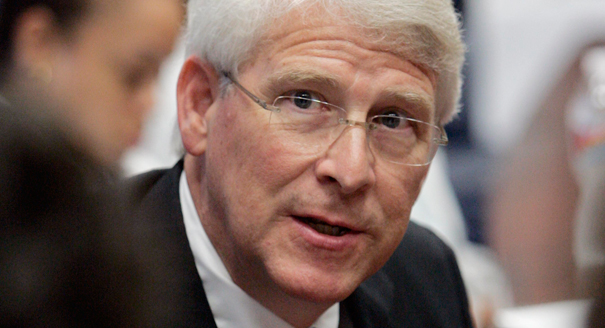Headlines
Wicker: Highway Bill Key to Critical Upgrades, Economic Growth
The recent introduction of a long-term highway bill is welcome news for communities across the country.
Enactment of a comprehensive, strategic transportation plan would give state and local leaders more certainty to invest in critical upgrades to aging roads and bridges. It also promises to pave the way for much-needed economic growth and job creation.
Titled the “Developing a Reliable and Innovative Vision for the Economy (DRIVE) Act,” the bipartisan highway legislation could not come at a more opportune time. Unless Congress acts, federal highway funding is set to expire at the end of July. Since the last long-term transportation bill expired in 2009, Congress has passed dozens of temporary funding extensions. Rather than offering another quick fix, the DRIVE Act would authorize highway funds for the next six years.
Keeping Mississippi Competitive
Infrastructure investment is good for Mississippi. The quality of our roads and bridges is important to keeping Mississippians safe and commerce strong. More than $60 billion in goods move across our state each year. The DRIVE Act recognizes that an efficient transportation network helps us stay economically competitive and keeps costs down for consumers. New freight funding in the bill, for example, could advance projects like Mississippi’s Interstate 69.
One of my priorities is ensuring that Mississippi’s local leaders have the power to address the most urgent infrastructure needs in their communities. These leaders are on the frontlines of transportation challenges but often lack the tools to implement solutions. Currently, cities and counties have access to less than 15 percent of federal highway funds and only one grant program.
As a member of the Environment and Public Works (EPW) Committee, I was successful in adding an amendment to the DRIVE Act that expands grant opportunities for local governments and metropolitan planning organizations. I also continue to work with Sen. Cory Booker (D-N.J.) to promote greater local involvement through a competitive grant process. Decision-making at the local level would help ensure that funding goes where it is needed most.
Supporting Rural Needs
Particularly encouraging is the DRIVE Act’s attention to infrastructure improvements in rural communities. For example, the bill would give states the ability to collaborate with the Department of Transportation on small community projects. It would also reauthorize the Appalachian Regional Commission (ARC), allocating $100 million annually to the agency’s economic development efforts in Appalachia, including 24 counties in northeastern Mississippi. Part of ARC’s reauthorization includes funding for broadband telecommunications services, which could have a major economic impact in rural areas of our state.
Both political parties recognize the importance of a high-quality transportation system and the role it plays in the well-being of our economy. The DRIVE Act earned approval from every member of the Senate EPW Committee. It now awaits consideration by the Commerce, Finance, and Banking committees before it can come to the Senate floor.
National policies should reflect current challenges, and surface transportation is no exception. Poor infrastructure and congestion affect Americans’ everyday lives in profound ways, from the commute to work to the prices at the grocery store. It is past time for a transportation bill that truly invests in our country’s long-term success.


















You must be logged in to post a comment Login